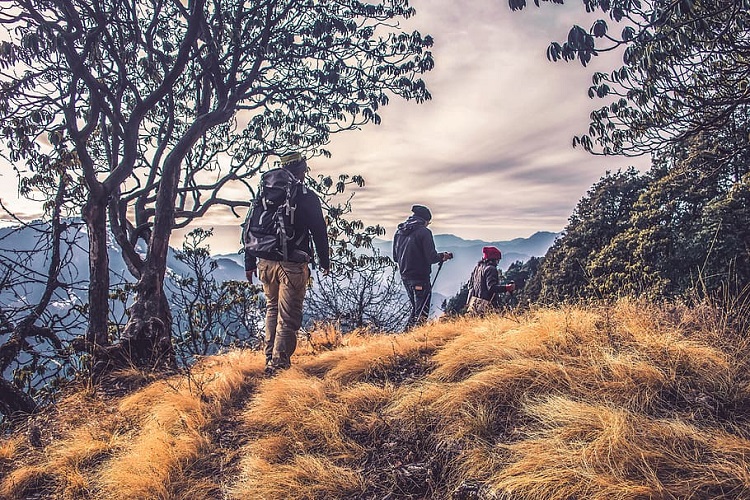Hiking is a great way to reconnect with mother nature, but it is also essential to take necessary safety precautions so that you can enjoy the experience fully.
Very few people get out of any hiking experience unscathed. Insect bites, scratches, and sunburns are the most common forms of injuries, and proper pre-planning and medical care can help you to stay away from this experience.

To prevent your hiking trip from turning sour, I have also covered some key considerations that you should make while planning your visit to nature.
1. Be Wary of Insect Bites and Stings
Nature can sting and bite, and most of us know that very well. One of the simplest ways to protect yourself from insect bites is to wear clothes that cover most parts of your skin. Covering your skin and wearing proper shoes before going hiking is also great for protecting yourself from sunburns!
There are many repellents available from many departmental stores. If you are highly allergic, please, don’t forget to pack in an Epi-Pen.
2. Muscle Cramps and Sprains can happen
Muscle cramps often occur because of dehydration and overexertion, therefore drinking an adequate amount of water while on hiking can help you avoid or lessen the intensity of muscle cramps. Check out your hiking location beforehand for places where you can refill your water bottles, so you don’t have to carry much weight!
Make sure you have a primary medical kit with you in case you sprain your arm or foot, which can be a bummer and quite painful. There are a lot of pre-made medical kits available that will help you deal with the most common injuries and ailments.
3. Follow the Trail
While exploring the unknown can be fun and tempting, it is not advisable. The possibilities of you not finding your place back are endless. In case you do get lost, a rescue mission will be difficult, and there is no knowing how long you could end up stuck in one place.
Emergency services even take time to coordinate and plan out an action mission, and they’re a scarce resource. Someone in the neighborhood could need them urgently for something more severe, so it is best to follow the preset hiking trails and keep yourself out of trouble.
4. Medical Accidents can happen
Hiking is an accident-prone adventure, a lot can go wrong, and it is usually the second half of the hiking experience in which accidents generally happen. By the second half, your body is tired and fatigued, and you might be more focused on getting the trip to finish than on your next step.
If you want to feel secure during your trip, I advise choosing a track that has medical shelters or emergency clinics nearby offering 24/7 service.
5. Get A Travel Insurance
If you’re traveling or hiking abroad, getting travel insurance that could cover your accidental cost can be pretty handy. Even if you’re an experienced hiker, the chances of you ending up alone in the wilderness are pretty real, so it is a good idea to get yourself insured.
Travel insurance or international travel insurance is helpful for accidental coverage. If you get lost or sustain any injury, you can claim for any medical costs. If you require rescuing from emergency services in a place like the US, you could be up for a huge medical bill.
7. Consult A Park Ranger
Many people usually hike in national or state parks because they’re better than hiking in an unknown domain. Hiking in a national park comes with the advantage of knowing what to expect. The rangers and security staff have a lot of park information.
The park management can give you loads of information on what you should be expecting. For example, toxic flora and fauna, any poisonous plants, and terrain with fallen trees or landslides. Information like this can help you stay safe.
8. Get Trip Insurance
If you’re a new hiker or hiking alone and are unsure about the area, you could employ the help of a hiking service. These guys are experienced professionals who know the ins and outs of the terrain and provide you with trip insurance, health care management, and special needs assistance.
Hiking service providers also, in many cases, have a robust medical care plan designed and are aware of nearby 24/7 emergency clinics with fully functional emergency rooms.
And that indicates the end to my suggestions, remember that while planning a hiking trip you will need to be flexible and have an open mind to be able to enjoy yourself. Happy Hiking!











